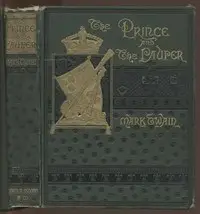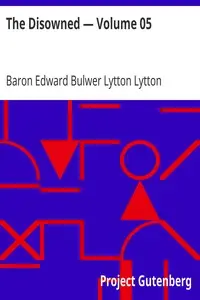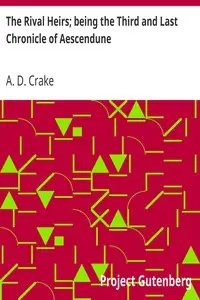"Vittoria — Volume 1" by George Meredith is a tale of revolution and devotion set in 19th-century Italy, where the lives of its characters are forever changed by the winds of political change. It all starts on Monte Motterone, where five climbers, including the ardent Carlo Ammiani, debate the upcoming rebellion, foreshadowing the intertwined themes of friendship, allegiance, and the shadows of tyranny. At the heart of this narrative is Signorina Vittoria, a talented singer whose life takes an unexpected turn as she becomes increasingly enmeshed in the country's struggle for freedom. As the novel unfolds, Vittoria, Carlo, and their associates find themselves swept up in the fervor of the cause, setting the stage for a powerful exploration of sacrifice against the landscape of historic uprisings.

Vittoria — Volume 1
By George Meredith
Amidst a backdrop of rising Italian nationalism, a captivating singer's artistic journey collides with a passionate fight for liberation in this mesmerizing novel.
Summary
About the AuthorGeorge Meredith was an English novelist and poet of the Victorian era. At first, his focus was poetry, influenced by John Keats among others, but Meredith gradually established a reputation as a novelist. The Ordeal of Richard Feverel (1859) briefly scandalised Victorian literary circles. Of his later novels, the most enduring is The Egoist (1879), though in his lifetime his greatest success was Diana of the Crossways (1885). His novels were innovative in their attention to characters' psychology, and also portrayed social change. His style, in both poetry and prose, was noted for its syntactic complexity; Oscar Wilde likened it to "chaos illumined by brilliant flashes of lightning". Meredith was an encourager of other novelists, as well as an influence on them; among those to benefit were Robert Louis Stevenson and George Gissing. Meredith was nominated for the Nobel Prize in Literature seven times.
George Meredith was an English novelist and poet of the Victorian era. At first, his focus was poetry, influenced by John Keats among others, but Meredith gradually established a reputation as a novelist. The Ordeal of Richard Feverel (1859) briefly scandalised Victorian literary circles. Of his later novels, the most enduring is The Egoist (1879), though in his lifetime his greatest success was Diana of the Crossways (1885). His novels were innovative in their attention to characters' psychology, and also portrayed social change. His style, in both poetry and prose, was noted for its syntactic complexity; Oscar Wilde likened it to "chaos illumined by brilliant flashes of lightning". Meredith was an encourager of other novelists, as well as an influence on them; among those to benefit were Robert Louis Stevenson and George Gissing. Meredith was nominated for the Nobel Prize in Literature seven times.


















